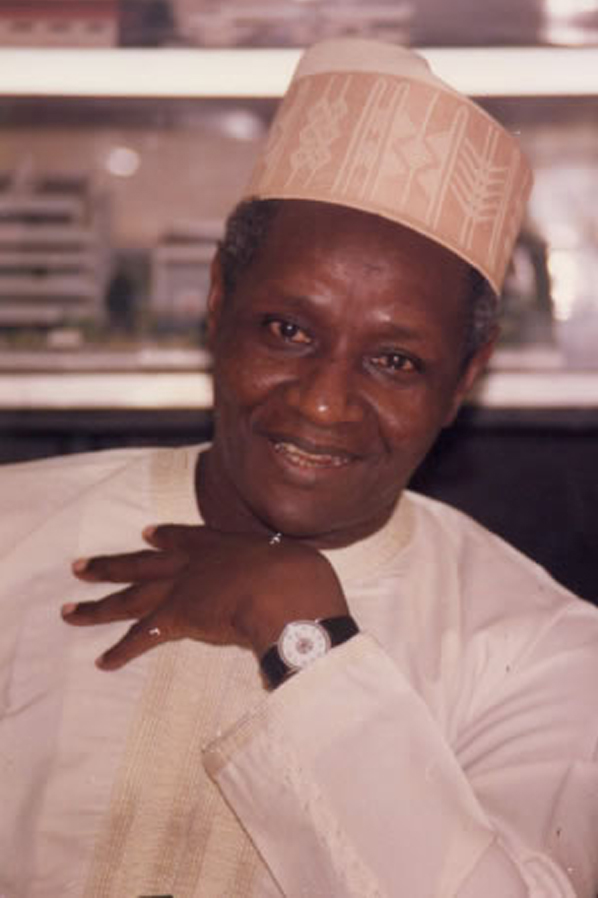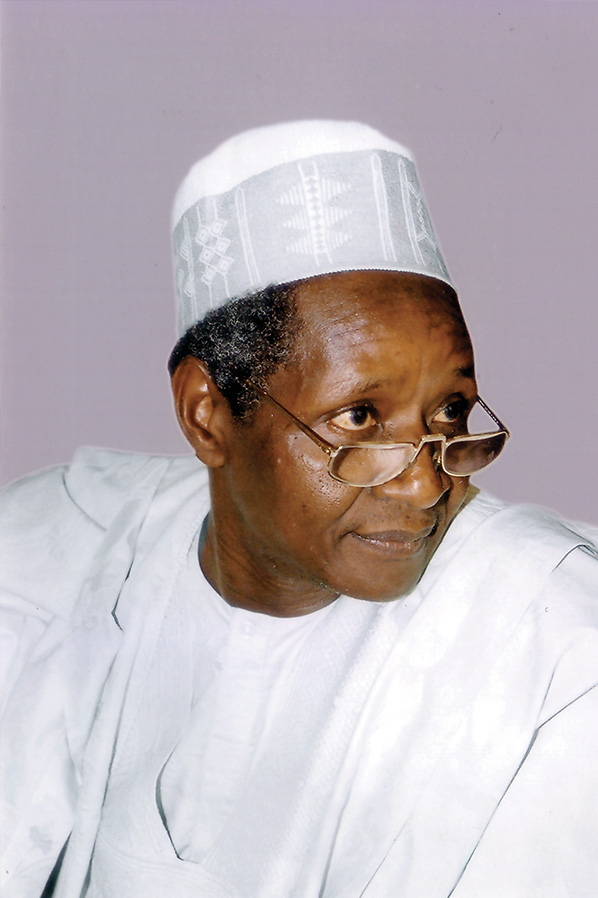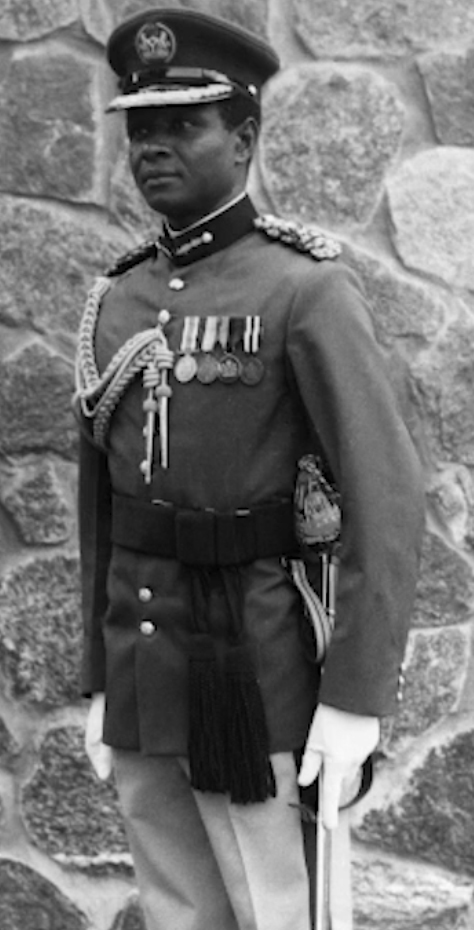Shehu Musa Yar'Adua
In life he was a force to reckon with...
...in death his legacy remains a guidance to those who hold power and those who seek power.
Born in Katsina on March 5, 1943 to the late Mutawallin Katsina, Mallam Musa Yar'Adua, young Shehu was greatly influenced by his father's strength of character and capacity for leadership. A member of the Katsina Emirate Council, Mallam Musa Yar'Adua was one of the leading lights of Nigerian political development and a pillar of political wisdom. During the First Republic, Mutawalli served as a member of the House of Representatives, Federal Minister for Establishment, Nigerianisation and Training and later as Minister for Lagos Affairs.
Shehu Yar'Adua was educated at Katsina Provincial Secondary School and the Royal Military Academy, Sandhurst, U.K. He returned from Sandhurst in 1964 as a young second lieutenant not long before the Nigerian Civil War broke out. Major Yar'Adua's capture of Onitsha in 1967 is regarded as the decisive battle that led to the end of the bloody conflict that consumed millions of lives.
The Civil War had a tremendous impact on Lt. Col. Shehu Yar'Adua. Disheartened by the devastation he witnessed, he recognised the futility of disunity based on ethnicity, region and religion. He understood that a united Nigeria was prequisite for the nation's growth and development.
Colonel Shehu Yar'Adua served as Federal Commissioner of Transport in 1976. He was credited with establishing a blueprint for the development of Nigeria 's transport sector as well as the reorganisation and decongestion of the nation's ports. Upon the assassination of Head of State Murtala Mohammed in 1977, Yar'Adua was named Chief of Staff, Supreme Headquarters and promoted to Major-General in the Obasanjo Administration. At just 36 years of age, he was the youngest officer to hold the rank on the African Continent.
Among many accomplishments, perhaps most significant was the Administration's successful conduct of elections and historic hand over to democratic rule in 1979. As the first military government to voluntarily hand over power in Africa, General Obasanjo and General Yar'Adua recognized that enthronement of democracy was the only way to ensure stability and social harmony in the country.
Upon retirement, Yar'Adua joined the business world with a view to providing important private sector services with partners and investors. He established a publishing company, cultivated agricultural holdings, developed manufacturing oil service and shipping facilities and incorporated Habib Nigeria Bank. He established the Islam in Africa Organisation and served as Chairman of the National Mosque Committee where he oversaw the funding and construction of the National Mosque, Abuja.
In April 1978 he was turbaned Tafidan Katsina, a traditional title he inherited from his father. But the return of a military regime without commitment to handing over to a democratically elected government led Shehu Yar'Adua to join politics. He was prepared to lead the political class through the familiar antics and obstacles set by his former colleagues in uniform.
Shehu Yar'Adua was a gifted politician. His grassroots politics were void of ethnic bias and religious or regional sentiment. His organisation, whether PF or SDP or PDM, dominated the political landscape of the country, breaking what he dubbed the “siege mentality” which had dogged politics since 1914.
His aspirations for the SDP Presidential ticket was inspired by a desire to give the nation the committed and responsible leadership it so desperately desired and deserved.
He advocated a new national purpose designed to enrich lives, inspire patriotic pride and serve the common good of all.
As a presidential candidate, Yar'Adua continued to break barriers, beating formidable home-based opponents and winning primary elections across the nation. Just when he was poised to win his party's presidential nomination, his election was annulled and he was banned from further participation.
Without bitterness or rancour, Shehu Yar'Adua devoted himself to playing the role of advisor, mentor and counsellor through new rounds of elections. He continued to steer the country toward democracy.
Always a courageous leader, Yar'Adua stood in the forefront to demand a timely hand over to democratically elected government. But those who sought to perpetuate themselves in power plotted to arrest and jail he and others in order to remove any obstacles that stood in their path.
Even when his death sentence was passed, Shehu Yar'Adua's spirit and determination were not broken. From Kirikiri Prison in 1995, he wrote, “Please don't worry too much about me. It is the sacrifice some of us must make for our country to be free.”
Shehu Musa Yar'Adua died two and a half years later in Abakaliki Prison. The country lost a gentleman and a hero, but the structures he built could not be destroyed. The democracy we now enjoy is testimony to Shehu Yar'Adua's courage and leadership. It is his courage and leadership that we continue to celebrate.




